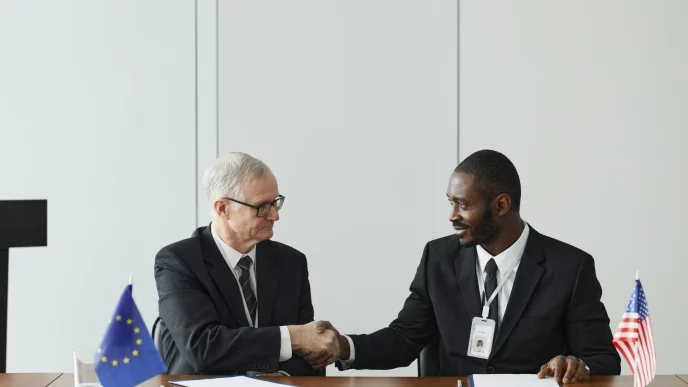From Open Arms To Deportations: Understanding Portugal's Changing Immigration Stance

Table of Contents
The Golden Age of Immigration: Portugal's Open-Door Policy (Pre-2010s)
Economic Incentives and Labor Shortages:
During the decades leading up to the 2008 financial crisis, Portugal experienced significant labor shortages across various sectors. This created a favorable environment for immigration, with the government actively seeking to attract foreign workers.
- Construction: The booming construction industry relied heavily on immigrant labor, particularly from Brazil, Cape Verde, and former Portuguese colonies in Africa.
- Agriculture: Seasonal agricultural work, particularly in the Algarve region, depended significantly on migrant workers.
- Tourism: The burgeoning tourism sector required a large workforce, including hospitality and service staff, many of whom were immigrants.
Several immigration programs were implemented to facilitate this influx of workers, including streamlined visa processes and specific programs targeting skilled professionals. This period saw significant positive economic impacts, with immigrants contributing to GDP growth and filling crucial labor gaps. Socially, a relatively diverse and integrated society began to emerge.
Cultural Integration and Social Acceptance:
While not without its challenges, the pre-2010s era saw relatively high levels of social acceptance of immigrants in Portugal.
- Successful integration initiatives focused on language training and cultural awareness programs.
- Many immigrant communities established strong social networks and contributed positively to local cultures.
However, even during this period, some negative perceptions existed, particularly concerning competition for jobs and resources in certain sectors. These underlying tensions would later play a significant role in shaping the narrative surrounding immigration.
The Shift in Policy: Factors Contributing to the Change
Economic Downturn and Rising Unemployment:
The 2008 financial crisis dramatically altered Portugal's economic landscape. The ensuing recession led to rising unemployment and a sharp increase in anti-immigrant sentiment. Many Portuguese citizens perceived immigrants as competing for scarce jobs, fueling a sense of resentment and frustration. This perception, often amplified by media narratives, directly influenced policy changes. The government, facing economic pressures and public dissatisfaction, began to tighten immigration regulations.
Political and Social Backlash:
The economic crisis also provided fertile ground for the rise of right-wing populist movements. These parties often used anti-immigrant rhetoric to gain political support, contributing to a hardening of attitudes towards immigration. Media narratives frequently portrayed immigrants as a burden on the social welfare system and a threat to national identity, further exacerbating tensions. Specific political decisions, such as stricter border controls and more stringent visa requirements, reflected this changing political climate.
Increased Irregular Migration and Security Concerns:
Increased irregular migration, particularly from African countries, added to security concerns and further fuelled the shift in Portugal's immigration policy. The government responded by increasing border control measures and implementing stricter deportation procedures. While aimed at addressing security concerns, these measures have also raised concerns about human rights violations and the potential for discrimination against vulnerable immigrant groups. The effectiveness of these measures in achieving their stated goals remains a subject of ongoing debate.
Current State of Portugal's Immigration Landscape: Deportations and Restrictions
Recent Legislative Changes:
Recent years have witnessed a significant tightening of Portugal's immigration laws. This includes stricter visa requirements, increased scrutiny of applications, and a notable increase in deportation rates. Specific legislation has targeted various immigrant groups, impacting their ability to work, access services, and even remain in the country. Data on deportation numbers reveals a clear upward trend, indicating a more restrictive approach to immigration.
Challenges Faced by Immigrants:
The stricter immigration policies have created significant challenges for immigrants in Portugal. Access to essential services such as healthcare, housing, and education has become more difficult for many, particularly undocumented immigrants. The increased risk of deportation has also created a climate of fear and uncertainty within immigrant communities. Ongoing legal battles and advocacy efforts are attempting to address these challenges and protect the rights of immigrants.
Conclusion
Portugal's immigration policy has undergone a dramatic shift from a relatively open-door approach to a more restrictive stance marked by increased deportations and tighter regulations. This transformation reflects a complex interplay of economic pressures, shifting social attitudes, and evolving political priorities. The economic downturn, the rise of populist movements, and concerns about irregular migration have all contributed to this change. The long-term consequences of this stricter approach remain to be seen, but it is clear that the future of Portugal's multicultural society is being redefined. Understanding Portugal's changing immigration stance requires ongoing critical analysis. Continue exploring this complex issue and stay informed about the evolving debates surrounding Portugal's immigration policy and its impact on the lives of immigrants and Portuguese society as a whole.

Featured Posts
-
 Yevrobachennya 2025 Scho Chekaye Nas V Sauni
May 14, 2025
Yevrobachennya 2025 Scho Chekaye Nas V Sauni
May 14, 2025 -
 Harvey Specters Suits La Episode 8 Recap And Analysis
May 14, 2025
Harvey Specters Suits La Episode 8 Recap And Analysis
May 14, 2025 -
 Recall Alert Wegmans Braised Beef With Vegetables Important Information
May 14, 2025
Recall Alert Wegmans Braised Beef With Vegetables Important Information
May 14, 2025 -
 Cannonball The Ultimate Tv Guide For Season U
May 14, 2025
Cannonball The Ultimate Tv Guide For Season U
May 14, 2025 -
 Global Trade Wars Impact On Tech Firm Ipo Plans
May 14, 2025
Global Trade Wars Impact On Tech Firm Ipo Plans
May 14, 2025
